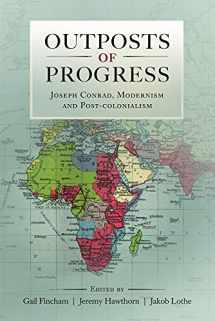
Outposts of Progress: Joseph Conrad, Modernism and Post-Colonialism
Book details
Summary
Description
Taking Joseph Conrad's short story 'An Outpost of Progress' as its catalyst, this volume of essays brings to light some new and contradictory readings of Conrad's approach to Africa that will be of interest to Conrad specialists and students alike. Key scholars in the field of Conrad studies have contributed to this book. They consider the relationship between Conrad's works and Disgrace, by South Africa's leading novelist, J.M. Coetzee; compare the role of the reader in Conrad's narratives and the writing of Chinua Achebe; and consider postcolonial texts from Africa in their intertextuality with Conrad's fiction: works by Nuruddin Farah, Veronique Tadjo, Dambudzo Marechera, Abdulrazak Gurnah, Zakes Mda and Zoë Wicomb, among others. The book is organised largely into three themes: language, culture and history; writing and genre in Conrad's fiction; and how Conrad positions his readers, living at different times and in different parts of the world. The contributors also focus on the word 'progress' - as used by Conrad in 1897, by his contemporaries, and as it might be used today. This volume present readers with a range of issues that demonstrate the significance and relevance of Conrad's work in the twenty-first century and underscore his seminal contribution to modernism and his inalienable position within postcolonial literature.


We would LOVE it if you could help us and other readers by reviewing the book
Book review



